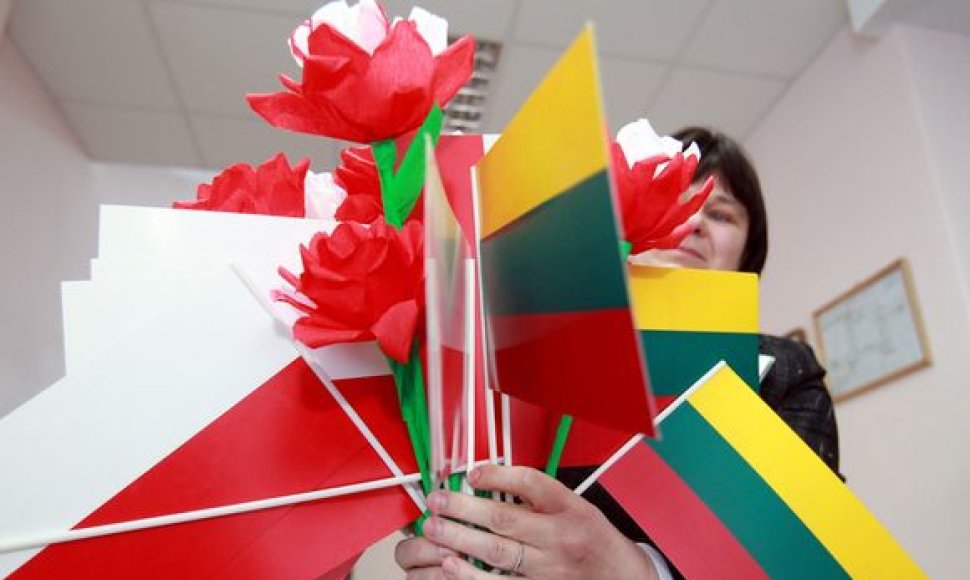Bafflingly bad and getting dangerously worse. That is how Polish-Lithuanian ties seem to outsiders. The two countries share six centuries of overlapping history (and sometimes geography), but remember it differently, Lithuanians, some 3m of them, think Poland is arrogant and interfering. Poland, 12 times larger, thinks Lithuania mistreats its ethnic Polish minority—around 8% of the population—and fails to keep its promises.
The rows are long-running and seemingly arcane. One is about spelling: Lithuanian law says official documents, such as passports and birth certificates, may be written only in the Lithuanian alphabet, which lacks the letter W and most of the diacritical marks of Polish. That is a nuisance for those with non-Lithuanian names. Poland’s president, Bronislaw Komorowski, who visited Lithuania last month, would spell his name Komorovski if he chose to live there. A law to change the alphabet restriction foundered in 2010: another sign of bad faith, says Warsaw.
Another dispute is about Lithuania’s Polish-language schools: they must now teach more subjects in Lithuanian. The supposed aim is to improve school-leavers’ flaky command of the national language and to improve their chances in the job market. But Poles in Lithuania decry this. They organised a strike in September, and plan a big protest on March 17th.
A third row is about restitution of property in the Vilnius region confiscated in the Soviet era. The ethnically Polish district was ruled by Poland before the war (“occupied”, say the Lithuanians). That complicates land titles. Other squabbles concern rules about using Polish in advertisements and street signs.
A new factor in all this is Poland’s rise to heavyweight status in Europe. Its neighbours need to get used to that. But so do Polish politicians.
With goodwill, the problems would be trivial. None of them amounts to discrimination, let alone persecution. Poles in Lithuania are still poor, but they have flourished since the country regained independence in 1991. Instead the issues have poisoned diplomatic relations. The Polish and Lithuanian foreign ministers, Radek Sikorski and Audronius Ažubalis, do not speak. “There is unanimity among top personalities that Lithuania has behaved unacceptably,” says Eugeniusz Smolar, a foreign-policy expert in Warsaw.
For their part Lithuanians see blatant interference in their domestic affairs, particularly in the close ties between Warsaw politicians and the local Polish leadership. Its administrative competence and loyalty to the Lithuanian state is, they feel, often questionable. Poland is, in effect, involved in the Lithuanian elections due in October.
The result is deadlock. Each side feels it is owed an apology by the other. Both say they want a “reset” of relations—but each thinks it should consist of the other backing down. The row risks affecting genuinely important areas, such as energy and transport links, or even military security (NATO’s defence plans against a theoretical Russian threat in the region depend on deploying a chunk of the Polish army in Lithuania). In April Polish warplanes based at a Lithuanian airfield will start policing Baltic airspace—a job that rotates among NATO allies. That, at least, has not been politicised, so far.
Outsiders (including America), neighbours (chiefly Sweden), NATO and the European Commission are worried. They are backing mediation started last year by the Organisation for Security and Co-operation in Europe (OSCE). In a coded reference to the Balkan wars in the 1990s, the OSCE’s commissioner for national minorities, Knut Vollebaek, says, “history in Europe shows that inter-ethnic tensions can spill over into problems between countries and even regions”. But he has got nowhere. Lithuanians tell him not to demand changes that the parliament won’t vote for. Polish politicians’ patience with their smallest neighbour is at breaking point. Public concern is growing.
A new factor in all this is Poland’s rise to heavyweight status in Europe. Its neighbours need to get used to that. But so do Polish politicians.












